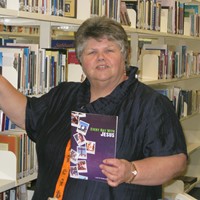For us, unlike the big beginning of the scriptures, beginnings have a definite “before”. Our beginnings are really a change, an alteration, even a replacement of what was before. For us, what was, with all its familiarity and comfort, is now no longer and the future, the after of the beginning, is unpredictable. This is true of our birth from the womb and, science tells us, of life itself even at the quantum level.
The introduction of a new person into a group causes a shift in dynamics. A new personality and a new set of behaviour patterns require each one of the group to start thinking and behaving in a new way. We see this clearly when a single person becomes part of a couple. Things change. When a child arrives, the couple have to start a new relationship that will accommodate the child. If a second or third child arrives, each family member has to start again in a new pattern of behaviour and attitude and give even more wriggle room to others than previously.
This change a new beginning brings can be very unsettling. It can be joyful or sad, slow or sudden, desired or feared, for the better or for the worse. There are some new beginnings many of us share – major beginnings such as marriage, school, a new job, moving house, state or country. Other beginnings are unique to each of us and to our situation.
With each new beginning there comes an ending. Endings and beginnings are inextricably entwined. One cannot exist without the other. And endings, like beginnings, can be just as unsettling and challenging. They too can be painful or pleasurable, anticipated or unexpected. As the human body grows and matures, many features disappear and appear. Baby fuzz becomes hair, gums acquire teeth, puberty brings acne and facial hair. Gone is the soft smooth skin and the marvellous flexibility of babyhood, but here approaches maturity.
Many of us are fortunate and reach old age, albeit, as Shakespeare put it so succinctly "sans eyes, sans teeth, sans taste, sans everything". (As You Like It: Act 2:7) Recently, a friend of mine pointed out that our ending is much like our beginning. Our hair thins out or may almost disappear, leaving just a fuzz. We lose teeth and can end up once again with gums. We rest, doze, sleep a great deal and sit or lie around a lot. Some of us become incontinent and start wearing nappies again. Yet others have to be hand fed nutritious purees and soft edibles.
These are the signs that we are preparing for another beginning: life after death. Learning to live gratefully and graciously till the final ending becomes a challenge to be met every day. It is said that each day is the first day of the rest of your life. This truism begins to have a deeper, sharper meaning as the number of your expected days shrinks before you.
This new life, the last we shall experience in the human cycle, has no science-based guideposts. Unlike our earthly life about which biologists and psychologists have discovered quite a bit, life after death remains a mystery. Christian faith assures us that we need not fear this new beginning. As people of faith, we have St Paul's words to sustain us. The Letter to the Romans: 8 v28 says "all things work together for good, for those who love God". And again, in Ecclesiastes: 3 v1-2 we are told: "For everything there is a season, and a time for every matter under heaven: a time to be born and a time to die." In John 14: 1, 2, 3 Jesus tells us: "Do not be troubled."
These scriptural assurances can encourage us to "go gentle into that good night" (Dylan Thomas) rather than try to fight against the inevitability of it. And, yes, it is a challenge and a step into the unknown. But isn't that just like all the beginnings of our lives?
Felicity is a parishioner in the Chisholm Parish.
Scripture quotes from NRSV with the Apocrypha: Hendrickson, 2005.


























































































